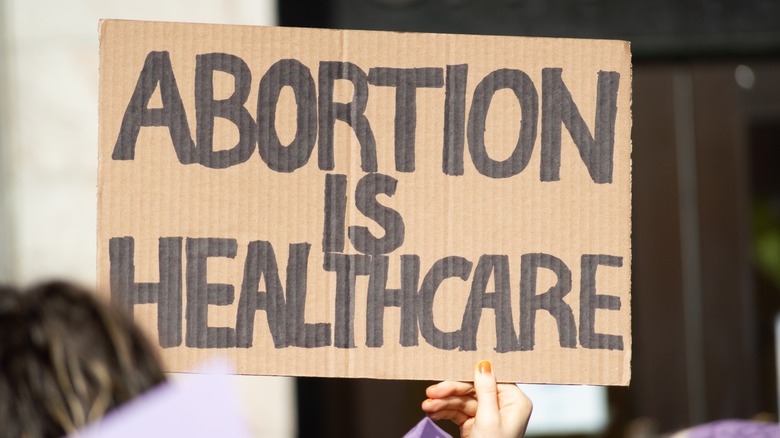Study Shows How Far Women Need To Travel For An Abortion Post-Roe
With the Supreme Court's decision to overturn Roe v. Wade, it is up to the states to decide what kind of abortion access they will allow for their residents. According to NBC News, abortion "is now banned in 13 states and restricted in Arizona, Florida and Georgia."
Women's reproductive rights and abortion access is a hot topic amongst voters as the midterm elections arrive in just one week. According to ABC News, voting trends have shown that the topic of safe and accessible abortions may be a "sleeper issue" among states where abortion rights are up in the air: a poll showed that 64% opposed the U.S. Supreme Court's decision to overturn Roe v. Wade, and many of these people are now registering to vote in the midterm elections. Many people are using the midterm elections to raise awareness on their need for safe abortions – Women have even used campaign ads as a platform to share their abortion stories.
When the Supreme Court's decision went into effect, specialists began studying how this will affect the lives of pregnant people seeking access to abortions. Many of these studies were recently published by JAMA and found that equal access no longer exists post-Roe v. Wade reversal, and the lives of many people will be disproportionately at risk.
Women are traveling over twice as long to seek abortion services
Multiple studies published in JAMA found that women are having to travel further to access facilities that will provide them with reproductive care and abortion services. One study found that women are now traveling 100 minutes to seek abortion facilities on average. Before Roe v. Wade was overturned, women only had to travel 30 minutes on average to seek the same care. This statistic alone illustrates how women are disproportionately affected by their ability to access this care. People who have little access to safe transportation or are lower on the economic scale may not be able to reach these facilities. This lack to access for a pregnant person seeking an abortion can put them at risk for domestic violence, depression, and even dangerous pregnancy complications, per NBC News.
This is just one of the many reasons that studies anticipate a rising mortality rate amongst women seeking to end their pregnancy. According to Harvard Professor Ana Langer, limiting people's access to abortions does not decrease the number of abortions performed, it only leads to an increased number of unsafe, unregulated attempts at pregnancy termination that are life threatening and potentially fatal for the mother.
If you or a loved one are seeking information about abortion services, crisis pregnancy centers across the US can provide information and guidance, especially in areas where access is limited.

